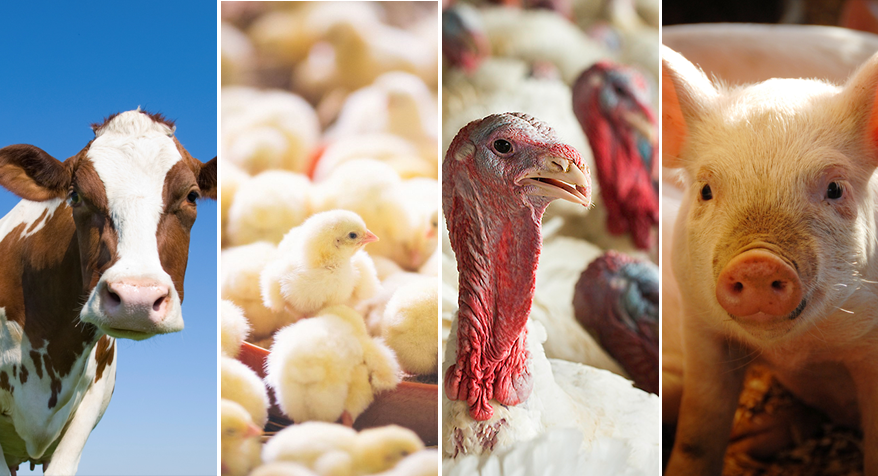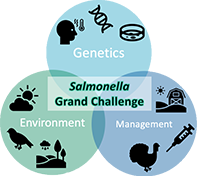ARS Salmonella Grand Challenge
STAIRS: Salmonella Team Advancing Integrated Research Solutions

Salmonella illness rates have not decreased in 20 years despite high investment and a downward trend in Salmonella contamination on meat and poultry products. The Salmonella Grand Challenge (SGC) is a transdisciplinary research effort that is finding solutions to this problem. The SGC brings together scientists from different disciplines and research locations in the Agricultural Research Service (ARS), as well as critical partners from universities and industry, to set priorities and collaborate on research that aims to reduce salmonellosis.
ARS Salmonella Grand Challenge and Data Analytics
Salmonella GC Resources

Salmonella GC One-Pager

SGC 1 Year Progress Report
Salmonella Grand Challenge Vision
Be an umbrella for Salmonella research solutions and lead USDA scientists in Salmonella research collaboration and data harmonization in partnership with industry and university stakeholders.
Salmonella Grand Challenge Mission
Reduce salmonellosis associated with meat and poultry products by facilitating research collaboration, developing new tools, and leveraging advanced data analytics to produce applied, cost-effective, pre-harvest interventions.
Salmonella Grand Challenge Focus Areas
Tools
Develop, modify, and validate novel tools and standardized protocols to identify the most highly pathogenic Salmonella and the best methods for quantitation.
Drivers
Define pre-harvest factors that contribute to persistence, emergence, and transmission of Salmonella in the meat and poultry production environment.
Interventions
Develop interventions that address the complexity of each production environment, scale of production, commodity, and community.
Decision Support
Apply artificial intelligence and machine learning to develop easy-to-use decision support tools that are targeted to diverse scales, types, and segments of food production.
Communication
Inform and disseminate science-based information and foster collaboration with producers, industry, and other stakeholders.
